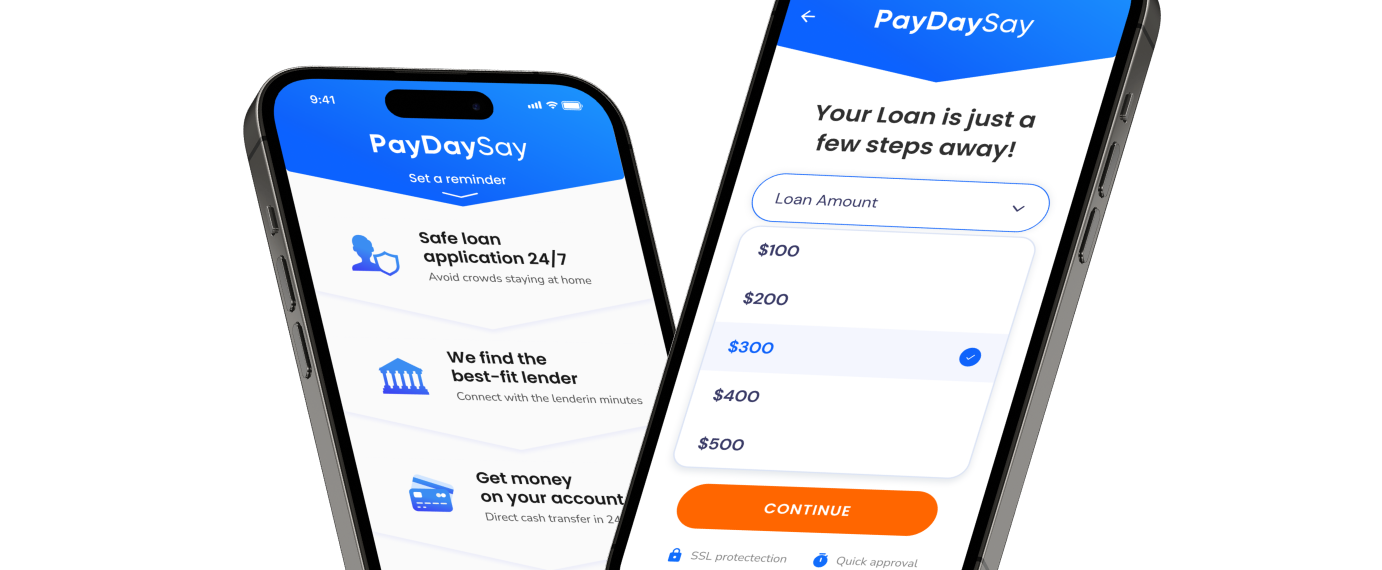When shopping for home financing, you may hear a lot about conventional loans. What are they, and why would you want one? Conventional loans come with stricter eligibility requirements than other financing options such as subprime mortgages or Home Affordable loan programs. As a result, many people believe that they are out of their reach.
However, from the borrower’s perspective, there are several good reasons to get a conventional loan rather than another type of financing. Here we explain what you should keep in mind if you’re considering getting one.
What Is a Conventional Loan?
A conventional loan is made through a bank or other lending institution. It is considered to be more mainstream than an alternative loan. They typically have lower interest rates than alternative financing. They are also backed by the issuer instead of the U.S. government, so before getting one, research is a must. There are two types: conforming loan and non-conforming loans. Using a money-borrowing app can help you explore different lenders and their offerings, making the research process more efficient.
Conventional Loan Requirements in February 2026
Conventional loans typically have more restrictions and requirements than alternative financing. For example, in order to qualify for a conventional loan, you will likely need to have good credit and a stable income. You might also be required to submit documentation regarding your employment history, assets, and income. Furthermore, you might be required to put down a large down payment.
Discounted rates are often available for applicants with lower credit scores, typically 740. Lenders can also make exceptions to their requirements under special circumstances.
Down Payment
Conventional loan down payments range from 3 to 15% of the purchase price. The more you put up as a down payment, the lower your interest rate will be. However, this may also mean that you are paying for more of the purchase price than someone who puts less money down.
- 3%: Typical offering for first-time home buyers and adjustable mortgage rate
- 5%: For those who are not first-time buyers or make less than 80% of the local median income
- 10%: If buying a second home
- 15%: For houses that have more than one unit (not single-family homes)
In addition, if you have a high debt-to-income ratio, it may be harder for you to get approved with a low down payment. If you have an auto or a student loan, you may not qualify for a conventional loan with a low down payment at all. This could be because your credit score is too low to qualify or your debt-to-income ratio is too high.
In some cases, borrowers with poor credit scores may be able to get a conventional loan with no down payment at all. These financing methods usually carry higher interest rates and lower monthly payments than other types of borrowing.
Private Mortgage Insurance
Private mortgage insurance (PMI) is a type of mortgage insurance that protects lenders in the case of borrower defaults. PMI is typically issued by private mortgage insurers and is an added cost to borrowers who offer less than a 20% down payment.
PMI policies can be sold in two forms: lender-based and policyholder-based. Lender-based PMI policies are sold by lenders to cover the lender’s costs in the event of a borrower default. Policyholder-based PMI policies are purchased by homeowners themselves, who then contract with the PMI to cover the costs associated with a defaulted loan.
A policyholder can purchase PMI at any time during the term of their loan, while first-time buyers should always purchase borrower-based PMI from a lender before applying for a mortgage loan. When burgers reach 20% of home equity, the PMI can be waived from mortgage payments.
Credit Score
A conventional loan has credit requirements, which is a numerical rating that gives an indication of how likely it is for a person to be approved for a home loan. Typically, lenders require borrowers to have a FICO score of 620 or higher. In addition to your credit history, these factors affect your conventional loan credit score:
- Your FICO score (credit score): Most lenders use the FICO Score, which is calculated using information from three major credit bureaus – Experian, Equifax, and TransUnion. It includes payment history as well as measures of credit utilization, length of time on each account, and new accounts opened in recent months.
- Payment history: Your payment history accounts for 30 percent of your conventional loan credit score. This includes all payments on each account – past due or otherwise – as well as whether any late payments were at least 29 days old.
- Credit utilization: Your utilization rate accounts for another 20 percent of your conventional loan credit score. This represents how much of your available credit you’re actually using.
Debt-to-Income Ratio
The conventional loan debt-to-income ratio (DTI) is determined by dividing the total amount of monthly debt payments, including principal and interest, by gross monthly income. The lower the ratio, the better. There are a number of ways to calculate this metric. The simplest way is to divide total debt payments, including principal and interest, by gross monthly income.
The debt-to-income ratio does not take into account any other financial obligations or assets owned by the borrower. It also does not take into account any savings or other sources of cash flow. It is simply a measure of how much money a borrower has available to pay down their principal balance each month.
Mortgage lenders generally require a DTI below 50% (typically 36% to 43%) for conventional loans, though in some cases a lender may accept 65%, based on a refinancing option.
Conventional Loan Rates
Conventional loan rates also vary depending on your credit score. The higher your credit score, the lower your interest rate will likely be. Lenders will typically charge a higher rate on loans that have lower credit scores or those that require borrowers to put down more money upfront.
A conventional loan offers low-interest rates that make homeownership an affordable option.
- Conventional 10-year: Interest rate – 6.67%
- Conventional 15-year: interest rates – 6.45%
- Conventional 30-year: interest rates – 7.23%
Once you have selected the one you want, you can shop around for better rates by going online or talking with a lender directly. Keep in mind that conventional loans may not be available in every state.
Who Are Conventional Loans Good For?
Conventional loans are a great way to obtain financing for a variety of things – from buying a house to taking out a student loan. They can be taken out by anyone with a strong FICO score and who can contribute a down payment of at least 3%, or more.
One advantage is that they tend to have lower interest rates than other types of borrowing. In addition, if you don’t make any payments on time, your interest rate will go up and your balance will increase. If you make payments on time and keep the loan current, your interest rate will stay the same or even go down.
Another advantage is that they’re easier to get than other types of financing. You just need to open an account at a bank or credit union and then apply online.
How To Qualify For a Conventional Loan?
The application process for a conventional loan is pretty straightforward. You’ll need to submit an application, which includes information about your income, assets, and a detailed financial plan. Then, you’ll be asked to submit documents that prove that you are earning income, such as a W-2 form or a pay stub.
To qualify for a conventional loan, you typically need to make at least a certain amount of money each month. If you’re self-employed, you may also have to show that your business is profitable. However, there are a few exceptions. For example, some banks will accept more than the traditional minimum requirements if you have a co-signer who can vouch for your good financial standing.
Alternatives to Conventional Loan
One of the most common reasons why people are unable to afford a home loan is that they have a poor credit history. There are many lenders out there, but not all of them will approve you and there is no guarantee that they will offer you the best rates and terms. If you have a bad credit score, it will be very difficult to get a conventional mortgage because of the high risk involved.
If you’re looking for an alternative way to obtain financing, then consider asking your parents, grandparents, or other relatives for help with a gift or cash. You may be surprised by how willing family members are to help when you ask for their support. Here are some other options you can try.
FHA Loans
Federal Housing Administration (FHA) loans are a type of mortgage that allows homebuyers who don’t have much money to borrow more than the mortgage limits normally allow. FHAs are federally backed that can be used by people who have low income, and bad credit, although their loan limits are less than conventional borrowing.
As a federal-backed financial product, they are backed by the full faith and credit of the United States government and have lower down payments and shorter closing times than other types of mortgages. Because they are backed by the federal government, they are also sometimes called “Government-insured” or “Ginnie Mae” loans.
In addition to backing loans with the full faith and credit of the U.S. government, FHA mortgages also allow for special features such as:
- Down payment assistance: For borrowers with very low down payments (3%), FHA will provide down payment assistance in the form of a loan that must be repaid over time.
- Homeownership counseling: Borrowers looking to buy a home may receive free counseling from an FHA-approved counselor before buying their first home.
- Property insurance: Borrowers can choose to purchase property insurance from their lender instead of having it added to their mortgage balance. This lowers their monthly costs and helps protect them in case of fire or other disasters that damage their homes.
VA Loans
A VA loan is a type of mortgage that is available to veterans who are in need of financial assistance. VAs can be used to finance purchases such as houses, cars, and motorcycles. They are federally guaranteed, which means they are backed by the U.S. Department of Veterans Affairs. This makes them a very safe way to get a mortgage.
They also offer lower interest rates than regular mortgages. VAs may also be easier to qualify for than other types of mortgages, This is because they are designed specifically for veterans. Veterans may be eligible for VA financing if they served in the military at any point during their lives. Although there is a funding fee required at closing which ranges from 0.5% to 3.6% of the loan amount.
USDA Loans
A USDA loan is guaranteed by the U.S. Department of Agriculture (USDA) and is specifically designed for rural homeowners. The USDA guarantees the financing because it insures the lender against default. In addition to being insured by the government, USDA financing also has many advantages over other types of mortgages.
It is much easier to qualify for a USDA loan than a conventional mortgage since most borrowers can show little or no debt on their credit report prior to applying. Another advantage is that it can be used to buy any type of property, including vacant land and mobile homes, so long as it is located in the United States.
However, there are some disadvantages to USDA loans that should be considered before applying for one. First, they are not available in all states, so you will need to make sure that you are eligible before you apply. Second, the interest rates tend to be higher than conventional mortgages, which may make them less attractive to some people.











 on your homescreen
on your homescreen
